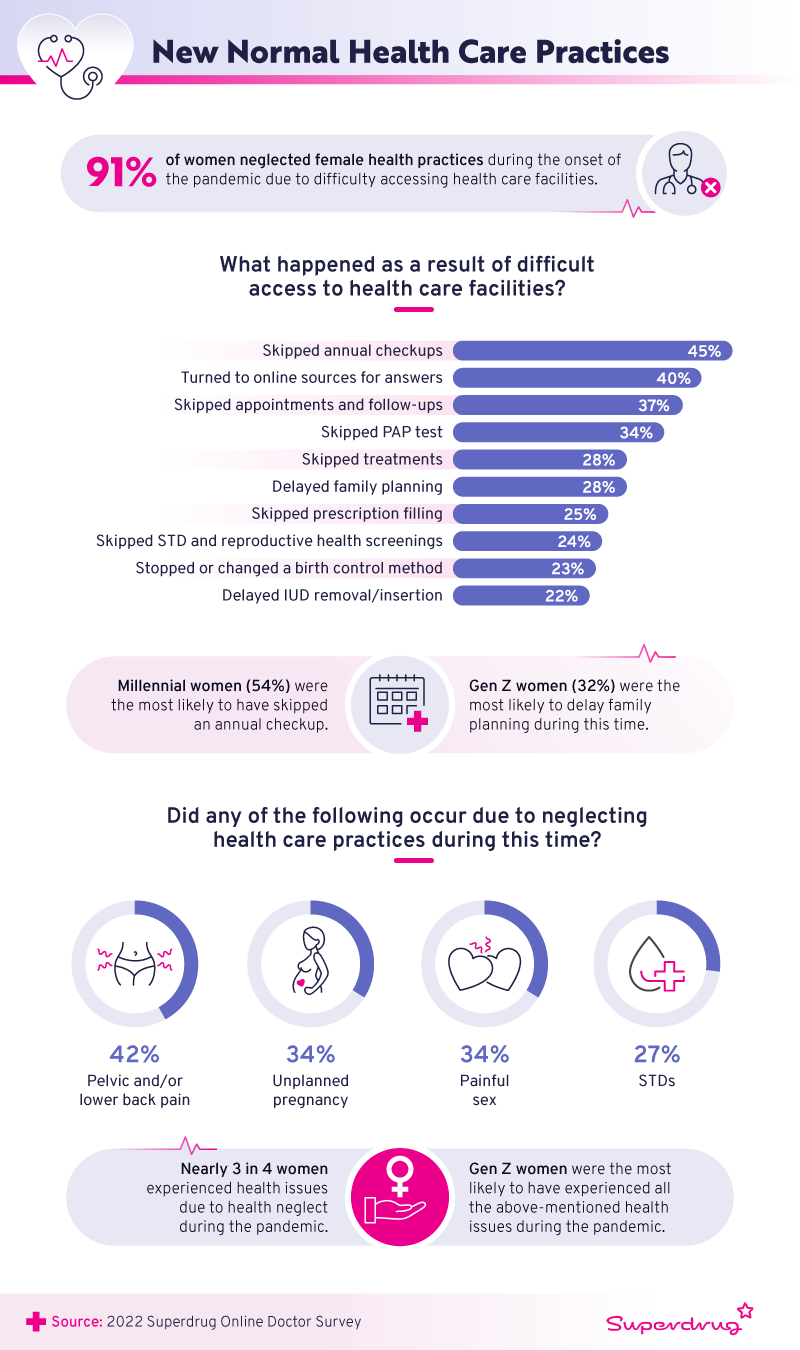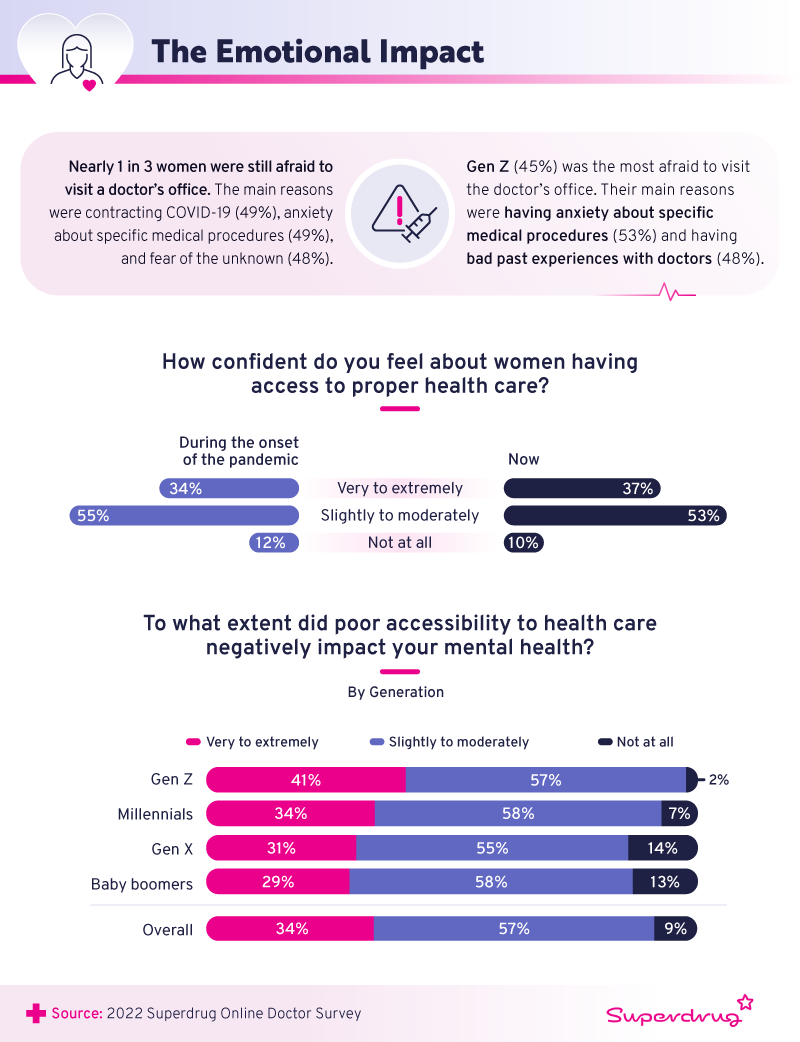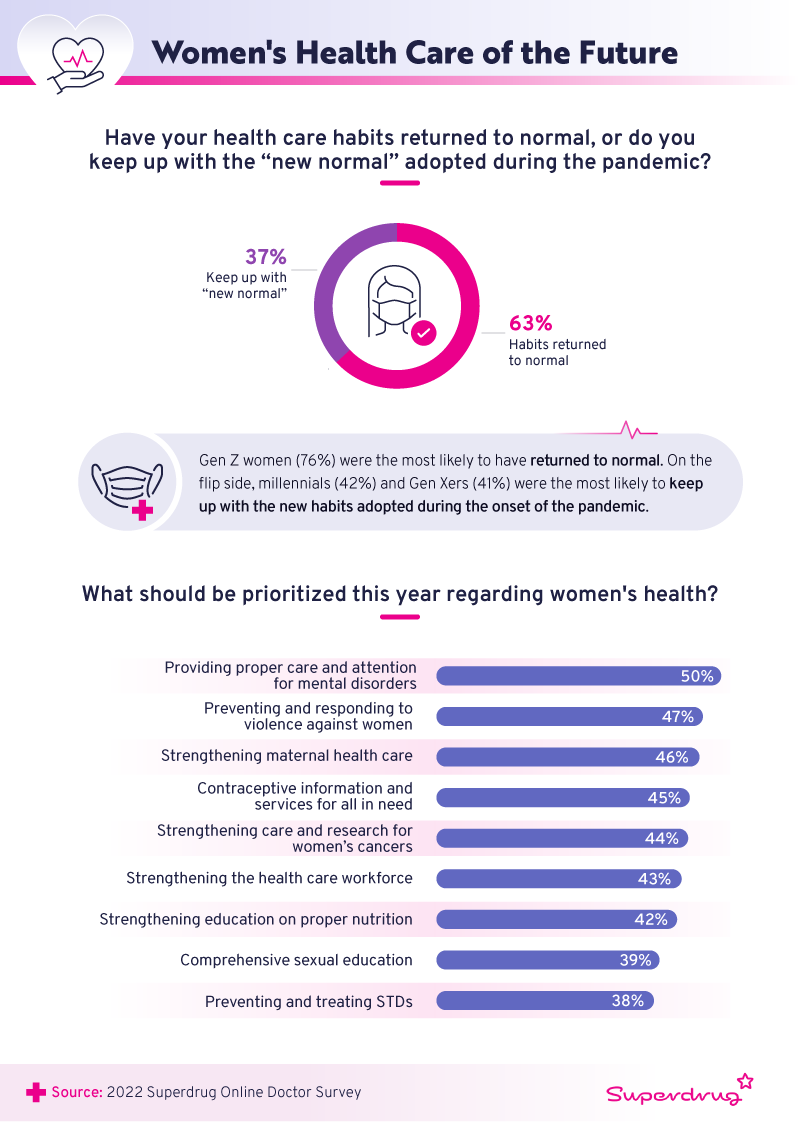
Nearly 3 in 4 Women Experienced Health Issues Due to Health Neglect During the Onset of the Pandemic
The pandemic lockdowns have changed a lot of things in the past two or so years, and getting medical care is no exception. At first, many doctor's offices only accepted patients needing emergency care. When the restrictions eased, many patients still felt uncomfortable getting routine care such as female health checkups and birth control.
While some types of health care visits can be done virtually, reproductive care for women often requires an in-person visit. To find out how access to women's health care has changed due to the pandemic, we recently polled over 1,000 women and asked about their experiences and how their habits have changed.
Key Takeaways
- 91% of women neglected female health practices during the onset of the pandemic due to reduced access to health care facilities.
- More than one-quarter of women put off family planning visits during the pandemic.
- Low-income people continue to feel the effects of reduced access to health care.
- Almost half of women still fear contracting Covid-19 during a visit to the doctor's office.
Pandemic's Impact on Women's Health Care
While many women have turned to online health services to answer questions and receive care, many women's health services aren't available in a telehealth setting. As a result, many women canceled or skipped important routine care appointments. Let's look at what kinds of care women have gone without due to the pandemic and the consequences they faced as a result.

Baby boomers were least likely to report neglecting health services, while a staggering 96% of Gen Z admitted to doing so. Putting off necessary health care services led to untreated symptoms like lower back or pelvic pain, unplanned pregnancy, painful sex, and STDs. The more common symptoms, like lower back pain, might not have concerned many of these respondents enough to visit their doctors. Also, STDs can be present without symptoms for a long time. That's why it's important to keep an eye on these things to prevent permanent damage.
Not Feeling Safe Yet?
Emotions play a significant role in seeking health care, as do finances. We asked respondents to share how their feelings about doctor's visits have changed since the pandemic began and how poor accessibility has affected their mental health. We also looked at how income might have played a role. Here's what they shared.

Going to the doctor can be uncomfortable for some, and feeling unsafe makes it worse. About one-third of women said they still don't feel completely safe visiting the doctor's office after the pandemic. Many were worried about contracting Covid-19 or had anxiety about certain medical procedures. They also reported an overwhelming fear of the unknown.
Gen Z reported the highest levels of fear about visiting the doctor, most commonly from anxiety around certain medical procedures or negative past experiences. They may suffer from medical trauma – a serious condition that can make it difficult to handle interactions with medical professionals, no matter how important to your health it might be.
Capacity issues and staff shortages have limited healthcare access for many during the pandemic, but how women have felt about their access to care hasn't changed much since then. When the pandemic began, 12% weren't confident they could access women's health care, and that number only dropped two percentage points when asked how they felt about it in 2022.
Future Priorities
So, what might women's health care look like in the future? The next part of our study explores how women's habits and priorities have changed and what changes they'd like to see over the next year.

Pandemic lockdowns and restrictions have brought on a few positive changes. The widespread adoption of telehealth visits may help increase access to health care for some people (including the elderly) and women.
Nearly half of women (48%) reported being open to continue receiving health care through telehealth instead of in person. But while this may be useful for certain health questions and follow-ups, many important routine procedures and tests require an in-person visit, such as Pap smears, STD tests, and gynecological exams. If women neglect these things, small or unseen problems can persist, worsen, and potentially become life-threatening.
Women's reproductive health isn't the only area of care with room for improvement. Preventing and treating STDs (a typical part of gynecological exams) was actually the lowest priority for the women we surveyed. Instead, mental health care, violence prevention and response, and maternal care were the top three issues that the women we surveyed said should be primary concerns in the coming year.
The Importance of Regular Checkups
If you've skipped routine doctor's exams, you're not alone. The pandemic has affected many women's health care routines and mental health. While a visit to the doctor might be a scary prospect right now for many – especially for those who haven't had an appointment for a long time – it could help prevent serious health consequences. Take advantage of telehealth appointments when possible, but keep in mind that you may have to go in-person occasionally to stay healthy.
Methodology and Limitations
We surveyed 1,008 American women to explore how the pandemic affected their health care habits and health in general. Among them, 25% belonged to Generation Z, 35% were millennials, 25% were from Generation X, and 15% were baby boomers.
For short, open-ended questions, outliers were removed. To help ensure that all respondents took our survey seriously, they were required to identify and correctly answer an attention-check question. The margin of error is plus or minus 3%, with a 95% confidence interval.
About Superdrug Online Doctor
Superdrug Online Doctor is a remote health care service that will make visiting your doctor much less troublesome. We offer medication, treatments, and tests prescribed by experts and deliver them right to your door.
Fair Use Statement
This article is meant to inform and educate. Feel free to share it with anyone who might benefit, but please do so only for noncommercial purposes and provide a link to this article.